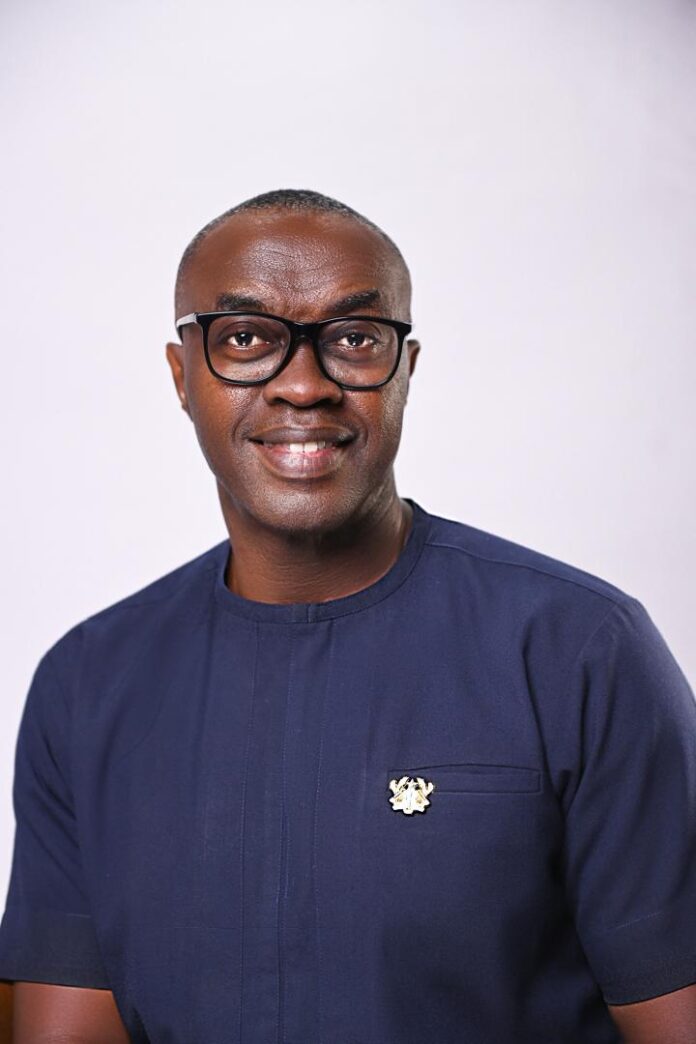I associate with Kwaku Kwarteng (MP)’s main thrust in his article, ‘To Break the Eight, We Must First Break the Norm.’
At the heart of the ‘Ponzi scheme’ he so eloquently describes is fiscal responsibility or, in our specific case, fiscal irresponsibility.
Governments have, since independence, lived beyond their means and so predictably and somewhat inevitably fall into debt distress every four years or so.
In public, as in private/personal finance, persistently spending more than one earns is the path to financial trouble.
Put differently, all governments have, since independence, failed to raise enough revenue to finance their expenditures and have borrowed excessively to finance this revenue shortfall.
What is urgently needed is economic independence. We must break the norm by permanently taking our financial destiny into our own hands.
To do this, we must significantly increase public revenue, rigorously reduce public expenditure, and stabilise the cedi long-term.
These are the essential steps to achieve the economic stability required for the growth needed to break this vicious cycle of debt distress.
Dr. Bawumia has been a significant voice in this debate, offering several norm-breaking proposals in his vision and priorities statement.
I will focus on three (3) of these proposals here, each of which holds the potential to transform our economic landscape for the better.
OTHER ARTICLES BY MORDECAI QUASHIE ON THIS SUBJECT:
- Mordecai Quarshie writes: “Economic independence now!”
- Economic independence now II: A day in the life of economically independent Ghana
- Increasing government revenue: By broadening the tax net through an Innovative flat tax regime, tax amnesty, fostering a tax filing culture, etc., we could potentially unlock a staggering $23 billion of unpaid taxes that currently lie outside the tax net. This would mark a paradigm shift in government revenue, eliminating the need for excessive borrowing. It would be a historic first for our independent country. (Ref. page 22 par117-123 Bawumia’s Vision speech delivered at University of Professional Studies (UPSA) on 7th February 2024). It is important to note that this flat tax proposal is only now possible due to recent advances in digitalisation championed by Dr Bawumia and proposed in his 2010 book “Monetary Policy and Financial Sector Reform in Africa-Ghana’s Experience”.
- Reducing government expenditure: By transferring government expenditure worth 3% of Gross Domestic Product (GDP) or approximately $2 billion to the private sector through private-public partnerships (PPP), leasing, and renting instead of direct purchases or constructions, we can significantly reduce our financial burden. Proposing a reduction in government expenditure while increasing revenue is a significant departure from the past. In the past, we have routinely borrowed on the back of increased revenue to fund development projects that win votes but are not economically viable enough to repay the loan. This is done at the expense of supporting indigenous growth that would sustainably finance future development through taxes. (page 21 paragraphs 113-116 Dr Bawumia’s Vision speech)
- Stabilising the cedi in the long term with gold: Our cedi has been depreciating consistently since independence, mainly due to monetary financing of government expenditures (money printing). This is inflationary since it debases the cedi. Even the new Ghana cedi introduced in 2007 has virtually lost all its original value relative to the US dollar (USD). Over the same period, gold has appreciated relative to the USD by over 80%. Dr. Bawumia proposes to stabilise the cedi in the long term with gold. He, therefore, suggests a continuation of the Bank of Ghana’s (BOG) Domestic Gold Purchasing Programme (DGPP), which involves buying gold in cedis until the reserves are large enough to ensure long-term currency stability. Since 2022, the BOG has purchased 26 tons of gold and has added to the 8.7 tonnes we had since independence, bringing the total to 34.7 tons and counting. This would be another first, a break from the norm and promises long-term stability to the cedi, something that has eluded us for sixty-seven (67) years.
Dr. Bawumia is the candidate of change and transformation in this election. He has demonstrated a deep understanding of our current economic situation and how to get us out and keep us out of it.
Perhaps what is most important about Kwaku Kwarteng’s piece is the need to acknowledge that the trajectory of our political economy’s management has been wrong.
We must recognise these past mistakes and demonstrate by example that we possess the political will and capacity to make things right.
If we do this, it will create rapport with the electorate, helping them to identify with our message of change and transformation and, therefore, give us their vote to break the norm and the eight.
Thanks
The writer, Mordecai Quarshie, is a seasoned Ghanaian politician with many years of experience in private life. You can reach him via mordecai.quarshie@gmail.com.


